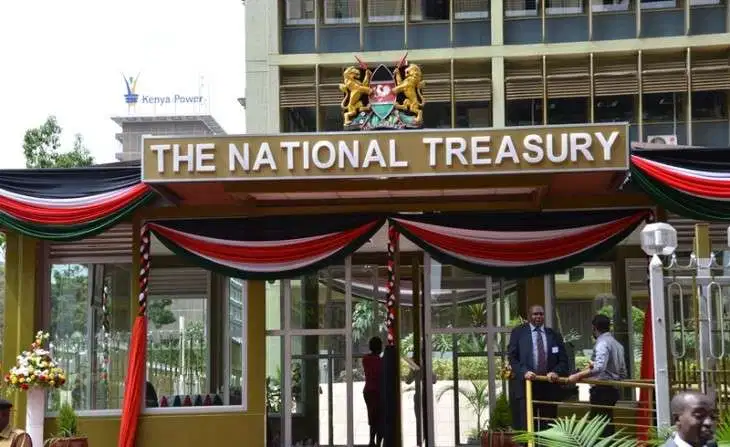Treasury targets Sh80 billion through new tap sale

The Treasury aims to collect Sh50 billion from the sale of the 15 and 25-year bonds, while an additional Sh30 billion is targeted from the 20-year bond.
The government is seeking to raise over Sh80 billion from the domestic market through a tap sale of long-term Treasury bonds to support the national budget.
The bonds on offer include 15, 20, and 25-year instruments that were first issued as early as 2012, signaling a deepening shift toward domestic borrowing as external financing becomes increasingly difficult to secure due to global economic and political instability.
To facilitate the tap sale, the Central Bank of Kenya (CBK) has reopened three specific bonds: FXD1/2022/015, FXD1/2022/025, and FXD1/2012/020, with interest rates set at 13.9 percent, 14.1 percent, and 12 percent respectively.
According to the People Daily, the Treasury aims to collect Sh50 billion from the sale of the 15 and 25-year bonds, while an additional Sh30 billion is targeted from the 20-year bond.
The offers for the 15 and 25-year securities are set to close at the end of April, while the 20-year bond offer will run until early May.
A tap sale enables the government to issue additional amounts of an already existing bond, rather than introducing a new one.
This approach allows for quicker fundraising without the need to go through the standard auction procedures.
Investors who secure allocations will be required to make payments via the Central Bank of Kenya’s DhowCSD platform, with payment deadlines scheduled for May 2 and May 9, depending on the specific bond.
According to a notice from the Central Bank, "All successful bidders should retrieve their payment details and reference key from the CBK DhowCSD investor portal or app under the transactions tab on Friday, May 2, 2025, for FXD1/2022/015 and FXD1/2022/025, and Friday, May 9, 2025, for FXD1/2012/020."
The Kenya Kwanza administration is under mounting pressure to manage the significant debt burden passed on by previous regimes, much of which was also borrowed for budget support purposes.
As access to the international Eurobond market becomes more challenging due to high interest rates and global financial uncertainty, the government is increasingly turning to domestic borrowing through Treasury bonds to fund its spending needs.
This shift, driven by caution around international debt and the high cost of foreign borrowing, has raised concerns about a potential “crowding out” effect.
With government bonds offering more security, banks are prioritizing lending to the state over extending credit to businesses and households.
The surge in government borrowing has made it harder for the private sector to access affordable loans, as financial institutions channel more of their capital toward less risky government securities.
Raymond Molenje, CEO of the Kenya Bankers Association, recently urged lawmakers to consider establishing a uniform lending rate for government and private sector borrowers.
Speaking before the National Assembly’s Finance Committee, he referenced 2002 as a year when lower government borrowing led to increased lending to the private sector, which in turn spurred economic growth.
There is cautious optimism that as the CBK continues to reduce its base lending rate, commercial banks may follow suit by lowering loan interest rates for businesses and individuals.
However, this relief is likely to materialize only if the government manages to curb its heavy reliance on domestic borrowing.
